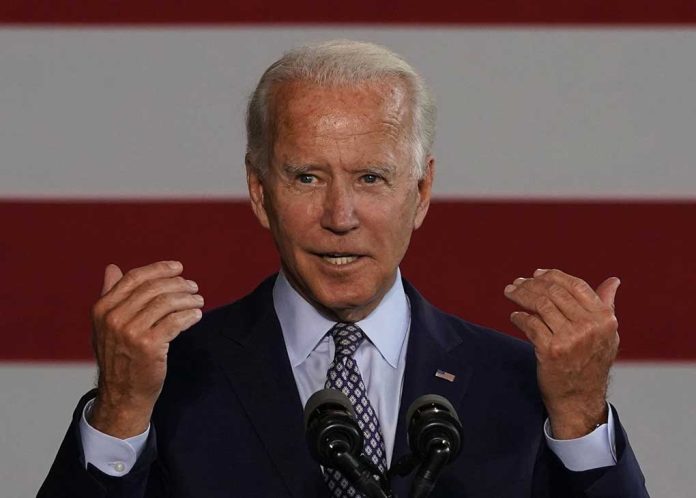
The Biden administration is set to implement a controversial methane emissions tax on the U.S. oil and gas industry, sparking debate over its economic impact and effectiveness in combating climate change.
At a Glance
- Biden administration finalizing a methane emissions tax for oil and gas producers.
- Initial penalty set at $900 per metric ton, increasing to $1,500 by 2026.
- Policy aims to reduce methane emissions, a potent greenhouse gas.
- Energy companies and Republican-led states challenging the rule.
- Environmental groups support the measure as accountability for pollution.
Biden Administration’s Climate Initiative Targets Oil and Gas Sector
The Biden-Harris administration is moving forward with a federal fee on methane emissions for oil and natural gas companies, a key component of their climate strategy. This new rule, stemming from the 2022 Inflation Reduction Act, is designed to encourage the reduction of methane emissions in the oil and gas sector, which is the largest industrial source of such emissions in the United States.
The Environmental Protection Agency (EPA) is finalizing the details of this regulation, which will impose a fee starting at $900 per ton of methane emissions above a mandated threshold in 2024. This fee is set to increase to $1,200 in 2025 and reach $1,500 by 2026. The rule is expected to be formally announced at the upcoming COP29 climate summit in Azerbaijan, showcasing the United States’ commitment to addressing climate change on the global stage.
US sets methane fee on oil, gas emitters as Biden term winds down https://t.co/ajH8qcdj7D pic.twitter.com/aYCC1u26H2
— Reuters (@Reuters) November 12, 2024
Industry Pushback and Environmental Support
The oil and gas industry has voiced strong opposition to the new methane fee. The American Petroleum Institute, a leading industry group, has labeled the measure a “punitive tax increase” that “undermines America’s energy advantage.” This sentiment reflects concerns within the sector about the potential economic impacts of the regulation.
Despite industry pushback, environmental groups have rallied behind the fee, viewing it as a necessary step to hold companies accountable for pollution contributing to global warming. The EPA estimates that the rule will lead to a reduction of 1.2 million metric tons of methane emissions by 2035, a significant contribution to climate change mitigation efforts.
Legal Challenges and Implementation Hurdles
The methane fee faces legal challenges from industry groups and Republican-led states. However, the Supreme Court has not blocked the rule, allowing the EPA to proceed with its implementation. The agency expects that as companies comply with the new regulations, fewer will be subject to the fee over time.
EPA Administrator Michael Regan has emphasized that this rule will work in conjunction with other EPA regulations to achieve significant reductions in methane emissions. However, the implementation of these measures has not been without its challenges. Previous EPA efforts to reduce emissions have faced setbacks, including a lack of approved third-party participants for a methane tracking program and delays in enforcing federal initiatives to address leaks at energy production facilities.
Looking Ahead: Policy Impact and Industry Adaptation
As the Biden administration moves forward with this climate initiative, the oil and gas industry is preparing for potential changes. Many large companies already meet methane-performance levels that would exempt them from the fee, suggesting that the impact may be more pronounced on smaller operators. The industry is expected to seek modifications to the policy under future administrations, citing concerns about its feasibility and legality.
The methane emissions tax represents a significant step in U.S. climate policy, aligning domestic actions with international commitments. However, its long-term effectiveness and economic implications remain subjects of ongoing debate between policymakers, industry leaders, and environmental advocates.
Sources:
- US sets methane fee on oil, gas emitters as Biden term winds down
- EPA to hit oil and gas companies with “methane fee” for drilling waste — but will it last?
- ‘Legally Dubious’: Biden-Harris Admin Set To Slap Tax On Methane Emissions







